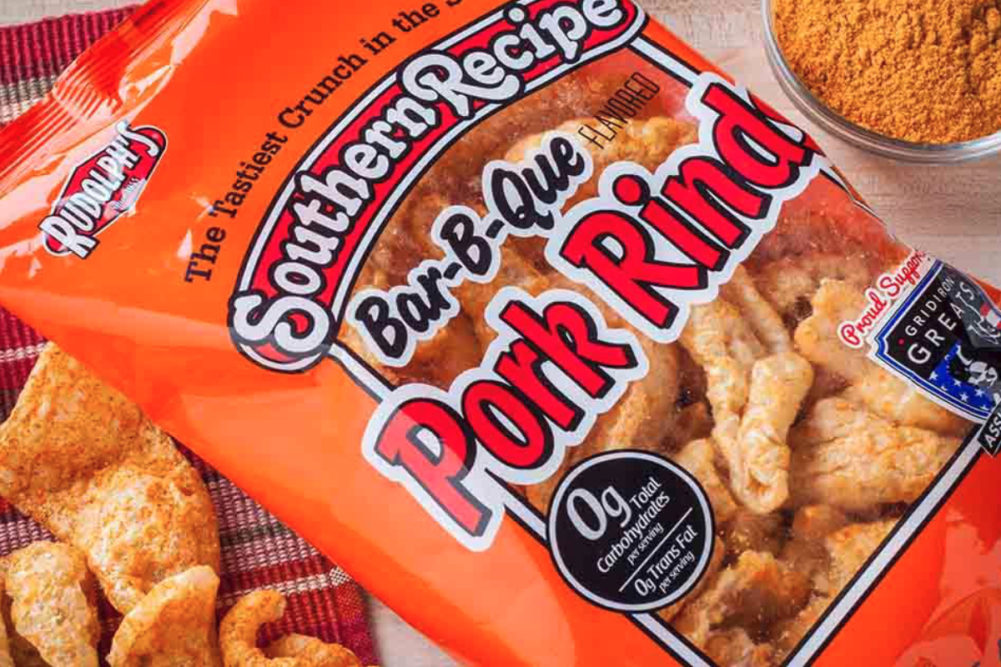LIMA, OHIO — Mark Singleton, vice president of sales and marketing at Rudolph Foods, has seen the food industry mobilize in response to crises before.
“The nature of the grocery business, we are used to dealing with disasters,” he said, citing recent hurricanes and other emergencies.
“If the shelf is clear, we get product moving that way,” he said. “It is what we've done for decades, but no one has ever seen something like this.”
Priorities have shifted at Rudolph Foods, the world’s largest producer of national branded and private label pork rinds, in the wake of COVID-19. The company’s recent focus has been attracting new consumers. Its Southern Recipe Small Batch brand, for example, is a millennial-driven, better-for-you pork rind available in flavors like Korean kimchi BBQ, pineapple ancho chile and cilantro lime.
“The pork rind industry became a keto darling over the last three years, and we've been one of the double-digit growth items in the snack food category,” Mr. Singleton said. “So here we are, trying to figure out what to do with new consumers and how to keep them interested, until around the first week of March or the last week of February. That is when we started diving into this really hard. It was like 20 hurricanes all at once.”
Communicating with retailers and ensuring product was available to consumers online were two of Mr. Singleton’s first priorities.
“We took some items that are shorter run items and told those customers to double up on orders, because we were only going to make them once a month,” he said. “We haven't eliminated SKUs, and we haven't cut customers or anything like that, but we’ve had to be strategic to make sure we can handle the surge.”
Retailers increased their flexibility, which helped keep shelves stocked during the initial surge.
“Most of our retailers are very strict about hitting your dock appointment, and there are penalties if you’re late or early delivering to a warehouse,” Mr. Singleton said. “Not during this. All of the sudden it was, ‘Forget that, just get us product. We know everything has been disrupted and we’re not going to turn up with fees and fines during this time.’”
Supply chain disruptions have been minimal, he added, with no major impacts on ingredient supply. Potential labor shortages related to the pandemic were offset by hiring additional workers.
In some cases, Rudolph Foods moved office workers to manufacturing lines to keep up with demand.
“We're doing the same thing on our supply chain as we're doing on our customer side,” Mr. Singleton said. “It is daily or weekly communication with our key suppliers, assuring that we know weeks out if something is going to happen.”
While the retail channel remains strong despite pressure, other segments face larger challenges.
“Each channel and each region are at a different stage of this process,” Mr. Singleton said. “We're having to handle it differently in each case.”
The company’s vending and foodservice segments have taken the largest hits.
“Foodservice is where we are seeing disruption,” Mr. Singleton said. “Pork rinds are on about 5,000 restaurant menus and 28 ballpark stadiums across America. Truck stops are slower because people aren’t traveling as much. There’s no airports, no factories, no office buildings, so our vending business is gone.”
The surge in demand at grocery stores leveled off to around pre-COVID-19 levels in late-April, Mr. Singleton said.
“It's not going to be sustainable,” he said. “People will start moving back to their more comfortable routines and purchase patterns.”
The shift toward e-commerce will likely have staying power, he predicted, but the longer-term impact on snacking remains to be seen.
“I think store visits are permanently down forever,” he said. “The question I have is, what will the economy do to demand? If we have 12% unemployment for a year, what does that do to snacking? That is what I will be trying to figure out. This is all new territory.”





